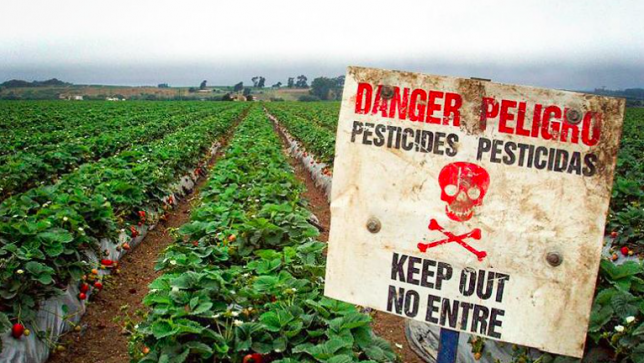A correlation between agricultural pesticides and cancer in western states has been found by University of Idaho and Northern Arizona University researchers. Two studies were conducted, one that examined correlating data in 11 Western states and one that took a closer look at data in Idaho specifically.

Source: Iowa Capital Dispatch
The studies found a possible relationship between agricultural pesticides, particularly fumigants such as metam, and cancer incidences through analyzing data. For the larger study, pesticide data was pulled from the U.S. Geological Survey Pesticide National Synthesis Project database and cancer data was gathered from National Cancer Institute State Cancer Profiles, according to the study.
The other study examined Idaho specifically, and found similar trends in data as the first study saw across the West of the lower 48.
Alan Kolok, a UI professor and director of the Idaho Water Resources Research Institute, led both studies and said the correlation between the sets of data on multiple population scales gives him a reason to want to look into the matter further.
“We’re not trying to be alarmist, and we’re not trying to say, ‘Oh, look, there’s a direct relationship between (the data),’” Kolok said. “That’s not at all what they’re saying. But at the same time, it would be disingenuous of us to not recognize that in a darkened room, we keep seeing a shiny object. It really is a call to action of let’s do more research and let’s elaborate on what’s going on relative to that shiny object.”
Kolok and fellow UI researcher Naveen Joseph said there have been many studies examining correlations between socioeconomic factors, like poverty, and cancer incidents, but theirs takes a step further by looking for an initiating factor. In this case, the data suggested a higher usage of fumigants like metam is correlated with higher cancer incidence rates.
Idaho is the only state Kolok has taken a close look at, and his colleague and co-author at Northern Arizona University, Cathy Propper, said she didn’t know if the right data was available in other states like it was in Idaho.
“If we wanted to look just within states, like Alan did within Idaho, it might be possible to extract similar kinds of information,” Propper said. “But as you can see when you take a look at the statewide analysis within the joint paper, every state’s different. As you go into each individual state, you start getting different kinds of scaling issues. So unless the data are fine grained enough to be able to extract that kind of information, it becomes difficult to interpret within states.”
The team of researchers was also concerned about breaching people’s privacy when it came to looking at specific data too closely. Rural areas, where agricultural practices and low populations dominate, could pose issues with privacy when the sample size becomes too small. To avoid this, the research was conducted by looking at all incidences of cancer in adults and children across the 11 states compared to pesticide use.
Kolok said the next steps they hope to take include expanding their data research to a nationwide scale and further examining whether there is a cause behind the correlation between pesticides and cancer. While neither UI or NAU have the laboratory capabilities to prove or disprove the correlation, Kolok is hoping to eventually find a lab to collaborate with and get funding to continue the research.
“It is absolutely striking how different states are from each other and counties are from each other,” Kolok said. “Which begs the question of if the pesticide load is different that’s being used in the state, does that cascade to a potential exposure to people? And the answer, from our two papers, is that there is suggested information that argues that it very well may. It’s a first step down that road, but it’s a significant first step.”


















